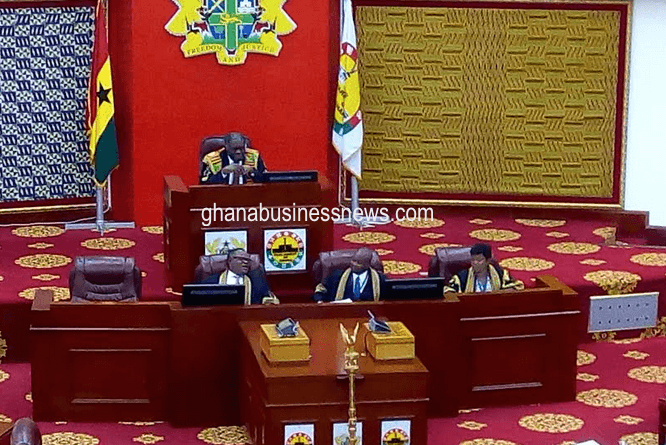Special Prosecutor’s Bill back to Parliament
 Parliament has agreed on the establishment of the Office of the Special Prosecutor (OSP) Bill with both majority and Minority sides advancing cogent argument in support of the office meant to check public office corruption.
Parliament has agreed on the establishment of the Office of the Special Prosecutor (OSP) Bill with both majority and Minority sides advancing cogent argument in support of the office meant to check public office corruption.
This was after Sophia Akuffo, the Attorney General had presented the Office of the Special Prosecutor Bill for the second reading.
The Bill was introduced to the House and read for the first time on July 31, 2017 after which members had the opportunity to read through and proposed amendments.
Members have since proposed about 77 clauses and 100 amendments to the legislation moved to fulfilled President Nana Akufo Addo’s campaign pledge in 2016.
The Bill also proposes five divisional offices which are Administrative, Investigation, Prosecution, Assets recovery and Managerial.
Mr Ben Abdallah Banda, Chairman of the Committee on Constitutional, Legal and Parliamentary Affairs presenting the Committee’s report to the House stated that the Bill is to establish the Office of the Special Prosecutor as a specialised agency to investigate specific cases of corruption involving public officers, politically exposed persons, and persons in the private sector involved in the commission of corruption and to prosecute the offences on the authority of the Attorney General.
He said as part of the consideration of the Bill, the Committee called for it publication in the electronic and print media for written Memoranda from the general public.
He said invitation letters were sent to selected Civil Society Organisations (CSOs), relevant public institutions and anti-corruption experts to formally solicit their views and inputs.
He said after the receipt of written Memoranda from some stakeholders, the Committee proceeded to hold a two-day stakeholder conference to discuss the received Memoranda and to seek further perspectives in respect of the Bill.
Some of the institution that participated in the conference are Economic and Organised Crime Office (EOCO), Commission on Human Rights and Administrative Justice (CHRAJ), Financial Intelligence Centre (FIC), and the Auditor-General’s Department.
Mr Banda also noted that the Committee subjected all the provisions in the Bill to strict scrutiny to ensure that its passage would lead to the establishment of an effective and operationally independent entity that would effectively contribute to ongoing efforts aimed at combating corruption.
He said the OSP is a giant initiative to complement the work of existing institutions to curb corruption, contribute towards poverty reduction and ensure accelerated development.
He said the office would also help reduce the workload on existing investigative agencies and thereby enhance their effectiveness.
Alhaji Inusah Fuseini, the Ranking Member of the Committee in his contribution stated that the Bill is not meant to overreach the monopoly and prosecutorial authority power of the Attorney General which is exclusive to him under Article 88 (3).
He said that why in fashioning out and designing the Bill the Committee looked at the operational, financial and structural independence of the Office of the Special Prosecutor.
Mr Buabeng Asamoah, Member of Parliament (MP) for Adenta in his contribution stated that the OSP Bill is vital at this point to secure the country’s ability to fight corruption effectively.
He said this law would entrench the Office of the Special Prosecutor to enable him deliver on its mandate.
Mr Haruna Iddrisu, the Minority Leader in his contribution stated the NDC Minority is not against the Bill and would support every effort to fight against corruption.
He however insisted that right procedure should be followed in the establishment of the Office of the Special Prosecutor.
Source: GNA
